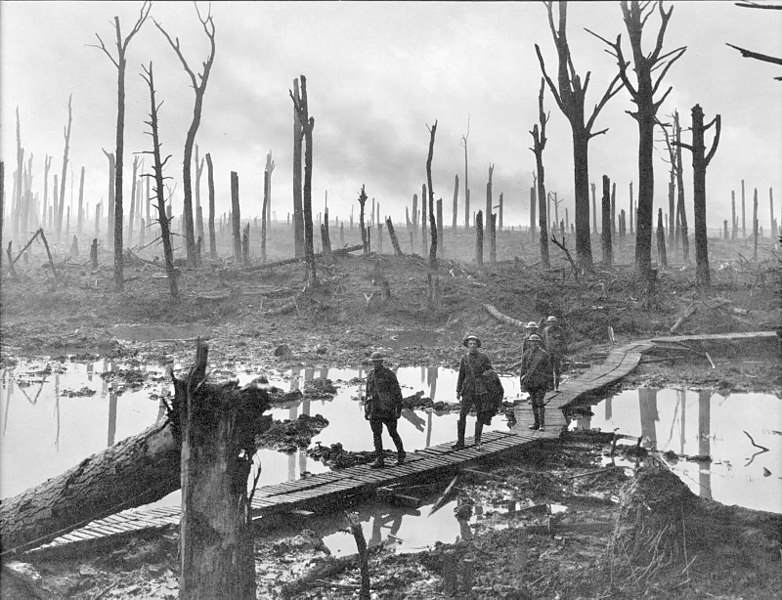
Due to a miscommunication, Lt. Jack Brewster of the 3rd Royal Fusiliers started forward with his men to attack a German position in Ypres before the proper order had been given. He was last seen rushing toward the German trenches and was feared lost. In May 1915 Brewster’s parents were desperately seeking more information when they received an unexpected letter from a German sergeant named Egbert Wagner:
Dear Sir
On 11th of this month, through God’s gracious guiding hand, I was led to discover your son, Lieutenant JA Brender [sic], 3rd Royal Fusiliers, in a shell hole, where he had been lying for two [three] days with a gun shot wound in the upper part of his thigh. Acting on the command of our Lord Jesus ‘Love your Enemies’ I bandaged him with the permission of our officer, and provided him with bread and wine. I had a lot of conversation with your dear son, whose condition visibly improved by evening. With eight of our brave Riflemen I arranged to get him conveyed, with the assistance of some medical staff, back from our front line position to the collecting center for wounded. There I handed over your dear son to the care of best and competent hands, and now carry out my promise given to your son, when we were lying so happily together in the shell-hole, in spite of the rain of bullets, that I would communicate his deliverance to his dear father. I offer you my earnest wish for peace and await your reply via Denmark.
Sergeant Egbert Wagner
He had forwarded it through his friend Axel Backhausen in Denmark. The family wrote back, asking Backhausen to convey their “great relief” to Wagner, who “must be a very good man. … We trust he may live to do other good work in the world for such men are badly needed in these terrible times.”
Brewster’s father added that friends had asked to see Wagner’s letter. “I hope you will forgive me for granting their requests,” he wrote. “I believe, in some cases, it will be used as a text for sermons next Sunday.”
(From Richard van Emden, Meeting the Enemy: The Human Face of the Great War, 2013.)
